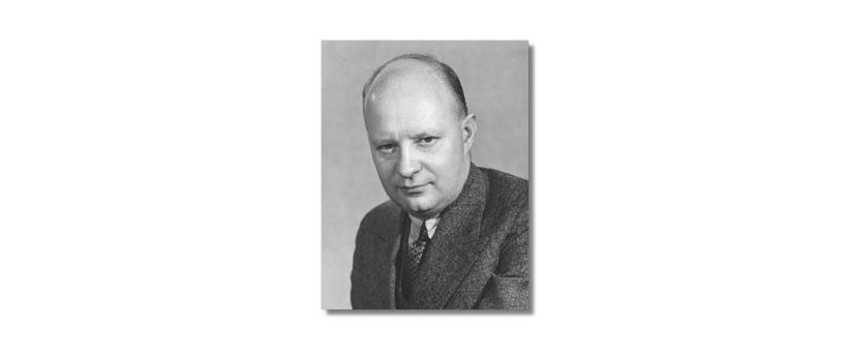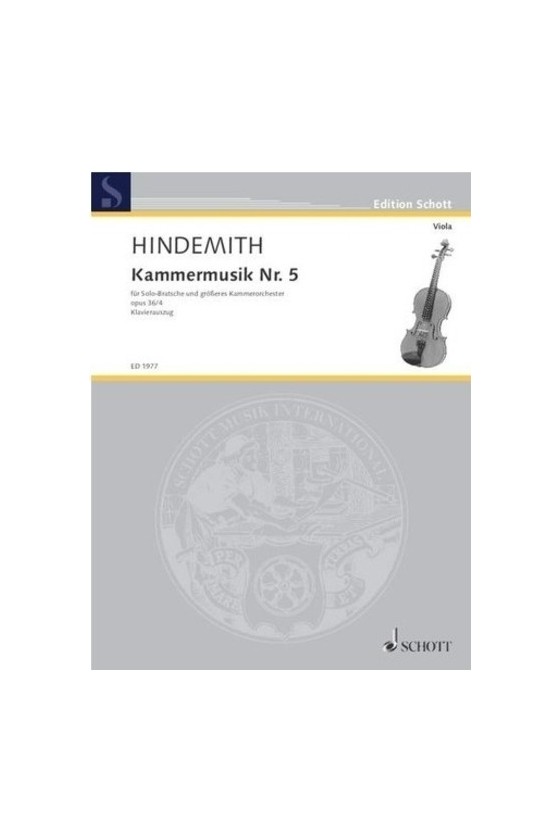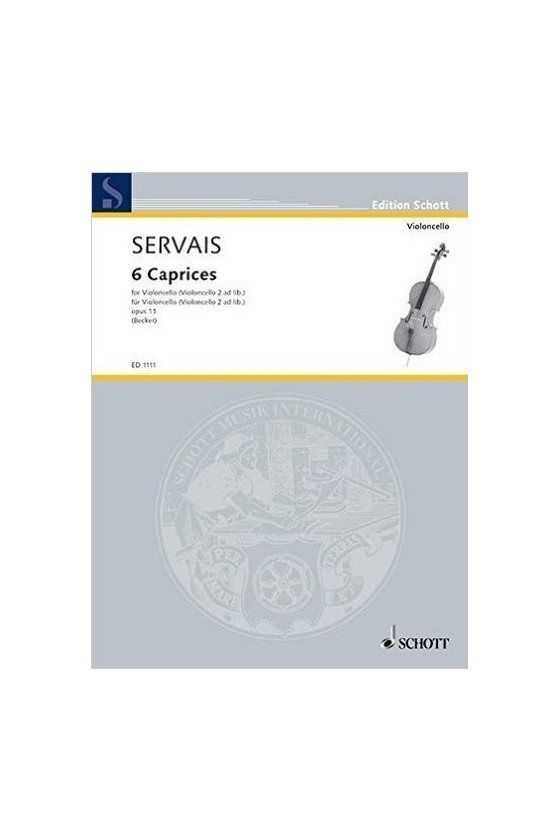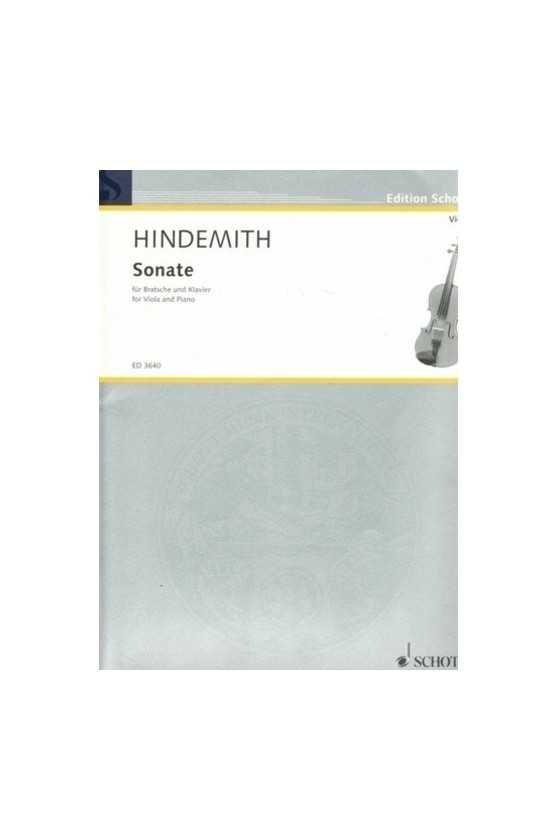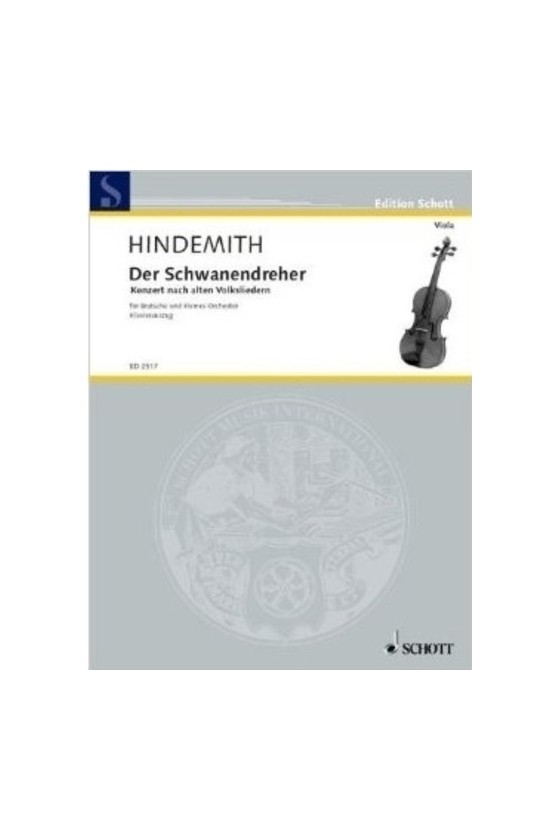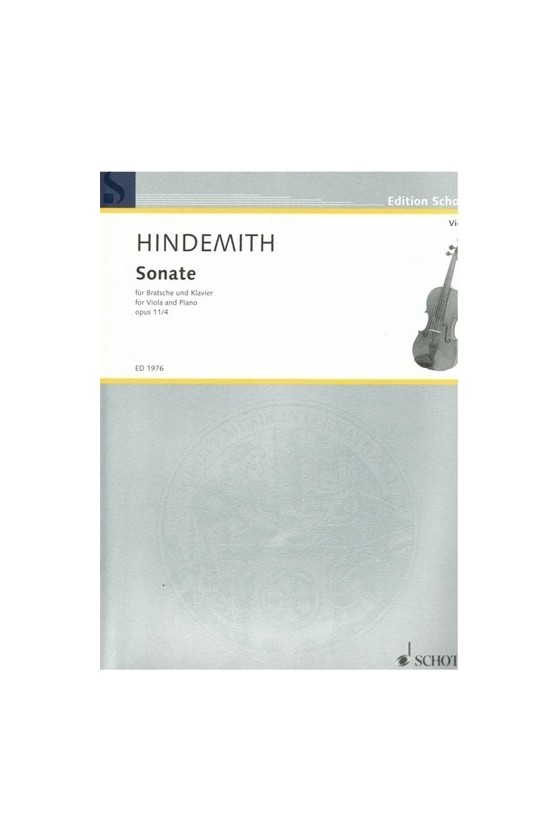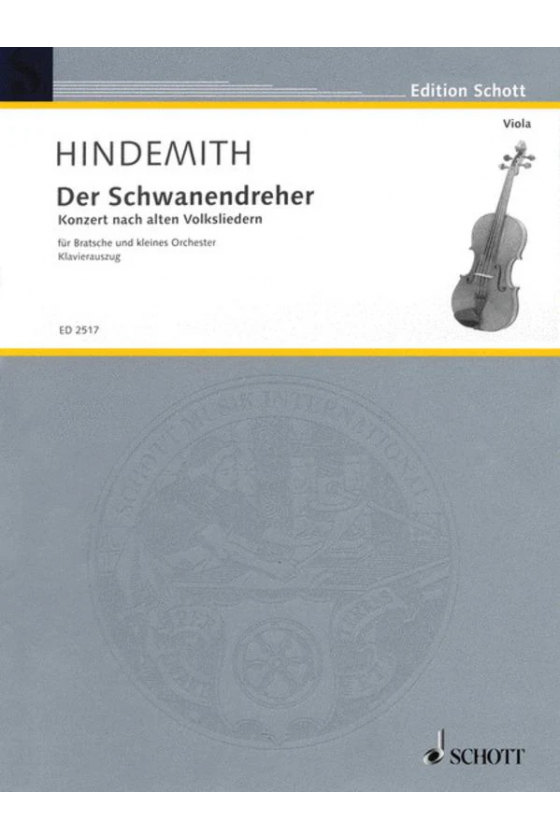Hindemith, Paul
Paul Hindemith (16 November 1895 – 28 December 1963) was a German composer of the Twentieth century. He became a primary advocate of the Neue Sachlichkeit form of music. The musical experience of Hindemith had been very complicated. He was most notable for his work as a musician, but early in his work as a performer, he eventually used his chamber musical skills for publicity and public relations in the Donaueschingen Festival. However, he still made sure he had time to compose. A great deal of his music was composed during his performances between 1917 and 1924. He also started teaching at the University of Music in Berlin while still working for the Festival.
While traveling Europe extensively, he established the Amar Quartet in 1921. Compositions like Kammermusik, which used viola and viola d'amore as solo instruments in a neo-Bachian manner, made him a significant promoter of the Neue Sachlichkeit (new objectivity) style of music in the 1920s. Additionally, he wrote the song cycle Das Marienleben (1923), the viola and orchestral work Der Schwanendreher (1935), the opera Mathis der Maler (1938), and the symphony Carl Maria von Weber's Metamorphosis of Themes (1943). His oratorio When Lilacs Last in the Dooryard Bloom'd, an arrangement of Whitman's poem, is noteworthy (1946). Robert Hindemith, a painter and decorator from Lower Silesia, and his wife Marie Hindemith, née Warnecke, had their first child, Hindemith, at Hanau, near Frankfurt. As a kid, he was taught to play the violin. He studied violin with Adolf Rebner and conducting and writing with Arnold Mendelssohn and Bernhard Sekles at Frankfurt's Dr. Hoch's Konservatorium. At first, he worked as a dancer and a comic in dance and comedy bands. In 1914, he was elevated to concertmaster of the Frankfurt Opera Orchestra, and in 1916, he was promoted to deputy conductor. From 1914 until 1918, he was a member of the Rebner String Quartet as the second violinist.
In September 1917, Hindemith enlisted in the Imperial German Army and was transferred to Alsace in January 1918 to join his battalion. While in the regiment band, he was assigned to play bass drum and established a string quartet. According to the New Grove Dictionary, his journal demonstrates that he only "survived grenade assaults by good luck" when he was ordered to the front in Flanders in May 1918. He and the Rebner Quartet returned to Frankfurt after the armistice.
He joined the Amar Quartet in 1921 and toured Europe extensively with them as a violist. In the 1920s, as a composer, he became a leading proponent of the Neue Sachlichkeit (new objectivity) school of music, with works like Kammermusik and other pieces. In a neo-Bachian vein, they include solo viola and viola d'amore pieces reminiscent of Bach's Brandenburg Concertos. The Worldwide Society for Contemporary Music Festival in Salzburg, Austria, first premiered several of his compositions in 1922, bringing him to the notice of a wider international audience. His work at the Donaueschingen Festival, where he organized avant-garde composers like Anton Webern and Arnold Schoenberg, started the following year. At the Berliner Hochschule für Musik in Berlin in 1927, he was named professor of music theory. Film composer Paul Hindemith collaborated with avant-garde director Hans Richter on the music and acting in his 1928 film, Ghosts Before Breakfast (Vormittagsspuk). In 2006, Ian Gardiner reworked the score. After Lionel Tertis, the composer of William Walton's viola concerto, turned it down. Instead, he performed the solo part at the premiere in 1929.
Hindemith married Gertrud (Johanna Gertrude) Rottenberg, an actress, and singer, on May 15, 1924. The couple never had any children. Hindemith's music had a mixed connection with the Nazis. Certain critics branded his music " depraved " (primarily based on his early, sexually charged operas such as Sancta Susanna). Joseph Goebbels, Germany's Minister of Propaganda, publicly slammed Hindemith as an "atonal noisemaker" in a speech at the Berlin Sports Palace in December 1934. In October 1936, the Nazis banned his music, and he was featured in the Entartete Musik (Degenerate Music) show in Düsseldorf. As a composer based on tonality, with numerous parallels to folk music in his work by this time, other Nazi leaders saw him as an example of a German composer of the contemporary day. In 1934, conductor Wilhelm Furtwängler offered a defense of Hindemith. There was much debate over his music, with Hindemith in and out of favor with the Nazis during the thirties.
Hindemith made multiple trips to Cairo and Ankara in the 1930s. After Goebbels compelled him to take an indefinite leave of absence from the Berlin Academy, he accepted an offer from the Turkish government to supervise the development of an Istanbul music school in 1935. During the presidency of Kemal Atatürk in Turkey, he was a significant role in new music pedagogy. Eduard Zuckmayer served as his deputy. Hindemith was instrumental in restructuring Turkish music education and establishing the Turkish State Opera and Ballet in the early years of the twentieth century. The Ankara State Conservatory has a lot to thank him for, even though he didn't remain in Turkey as long as other émigrés. Young Turkish musicians looked up to and revered Hindemith as a "true master."
